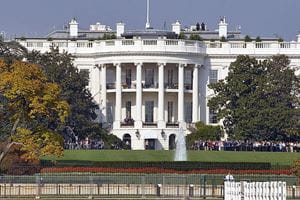
President Obama is scheduled to meet with King Abdullah in Riyadh to address a number of important securityissues in the region. The Kingdom of Saudi Arabia is a leader among Islamic countries, a close ally of the United States, but also one of the most restrictive countries in the world with respect to fundamental human rights and religious freedoms. As a friend and ally, President Obama should urge King Abdullah, and the other officials he meets with, to respect those values that America claims to represent, values which President Obama himself has recently praised. "Yet even as our faith sustains us, it's also clear that around the world, freedom of religion is under threat," President Obama said at the National Prayer Breakfast on February 6, 2014.
"We see governments engaging in discrimination and violence against the faithful. We sometimes see religion twisted in an attempt to justify hatred and persecution against other people just because of who they are, or how they pray, or who they love," he continued. This statement is profoundly true about the Kingdom of Saudi Arabia. "Freedom of Religion is Neither Recognized nor Protected under the Law" As the most recent report on International Religious Freedom from the Department of State describes, "Freedom of religion is neither recognized nor protected under the law and the government severely restricted it in practice."
In January, the Pew Forum on Religion and Public Life listed Saudi Arabia as the fourth most restrictive nation on earth in terms of government regulations on religion. In essence, unless you are a member of the Sunni Islamic majority, you legally have no right whatsoever to practice your faith in Saudi Arabia. According to the 2013 report from the United States Commission on International Religious Freedom (USCIRF), "Not a single church or other non-Muslim house of worship exists in the country." The impact of these policies that restrict freedom of expression, freedom of gathering, and freedom of worship, affect not just the more than 20 million Saudi nationals, but also some 7.5 million foreign workers, many of whom are non-Muslims. The congressional letter to the president coming out on Thursday also mentions incidents of Christian persecution, including an incidentin December of 2011 when Saudi secret police raided a gathering of 35 Ethiopian workers who were meeting in a private home to pray together.
Over the following eight months, ICC worked with numerous members of Congress on this case to advocate for their release. Finally, on August 1, 2012, these 35 workers were deported back to Ethiopia. "The Saudi officials don't tolerate any other religions other than Islam. They consider non-Muslims as unbelievers. They are full of hatred towards non-Muslims," one of the prisoners told ICC following his release. Unfortunately, this was not an isolated incident. Foreign workers are regularly detained for similar charges, and in some cases the punishments can be far more severe. In May, 2013, a Lebanese national was sentenced to six years in prison and 600 lashes for assisting a Saudi woman in fleeing the country, after she converted to Christianity. A Saudi national was sentenced to two years and two hundred lashes for his role in her escape, Fox News reported. These incidents represent just a small percentage of the incidents of religious persecution that have been documented in recent years. While the Kingdom of Saudi Arabia is one of the most repressive regimes in regards to religious freedom and human rights, they are also a key ally of the United States. As a result of this relationship, President Obama has an opportunity to address these abuses.
"Promoting Religious Freedom is a Key Objective" President Obama, in his remarks at the National Prayer Breakfast, continued, "As I've said before, there are times when we work with governments that don't always meet our highest standards, but they're working with us on core interests such as the security of the American people. At the same time, we also deeply believe that it's in our interest, even with our partners, sometimes with our friends, to stand up for universal human rights. So promoting religious freedom is a key objective of U.S. foreign policy.
And I'm proud that no nation on Earth does more to stand up for the freedom of religion around the world than the United States of America." This trip presents the President with a prime opportunity to put his own words into action. Saudi Arabia is a government that works with the United States on core interests, and also one that shows little respect for universal human rights, chief among them religious freedom. So today, ICC is joining with over 50 members of congress in urging the President to promote religious freedom as a part of his discussions with King Abdullah. This Friday is a very rare opportunity to change the lives of millions of foreign workers and Saudi nationals for the better; we call on President Obama to publicly take full advantage of it.

